Available 24/7
Available 24/7
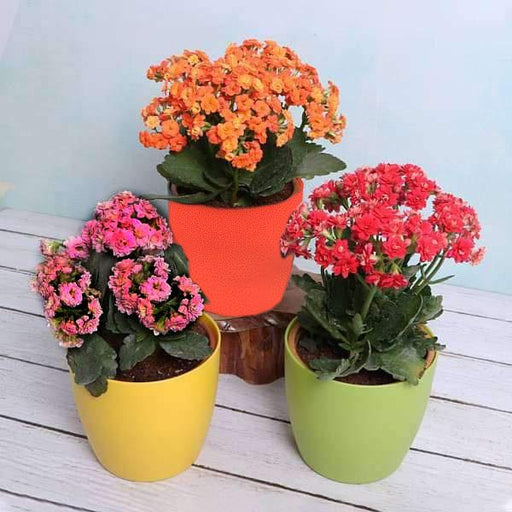
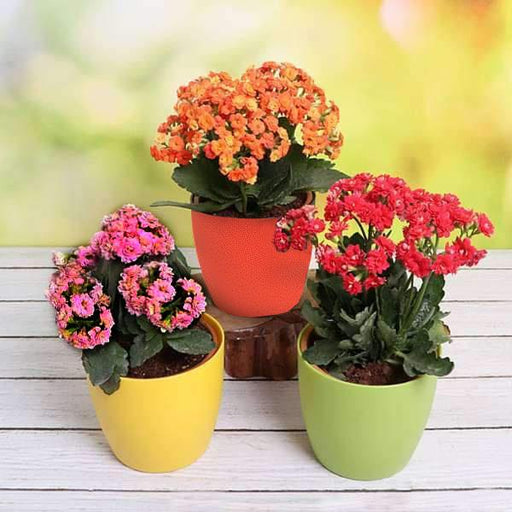 Save 10%
Save 10%
DescriptionThe Kalanchoes are thick leaved elegant flowering succulent houseplants. Make your home garden more vibrant and full of colors by bringi...
View full details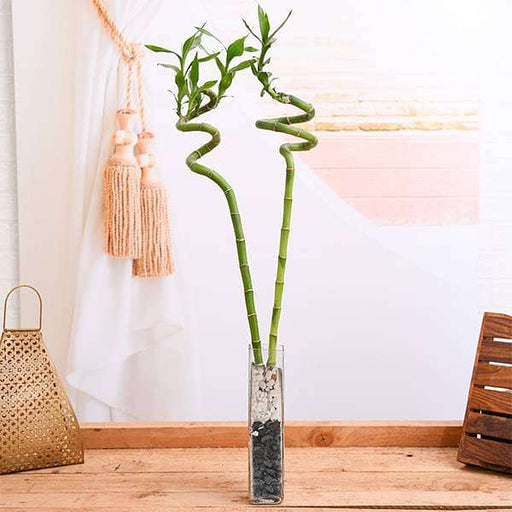 Save 18%
Save 18%
DescriptionThis pack contains two 60 cm Spiral Stick Lucky Bamboo Plant + Glass vase + 250g white chip pebbels + 250g black chip pebbels.About Luc...
View full details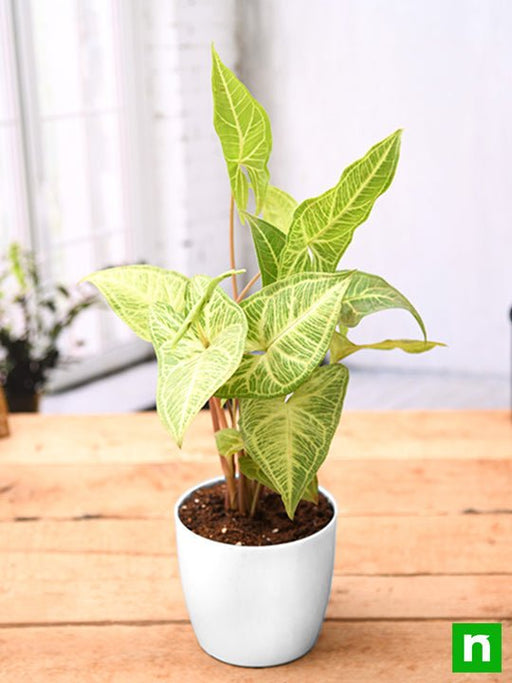
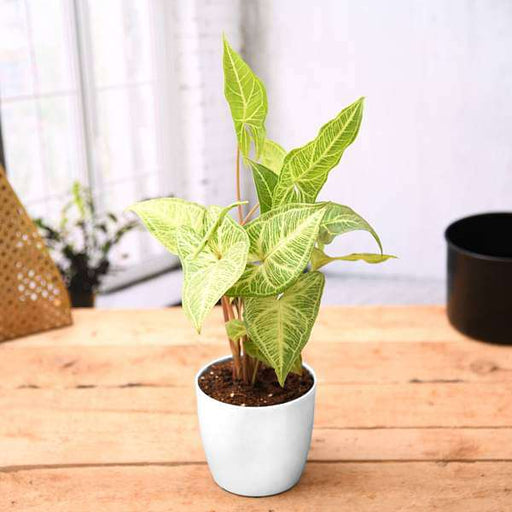
DescriptionIf the juvenile foliage along with a more compact plant is preferred, cut off all the climbing stems that develop, this will keep it bus...
View full details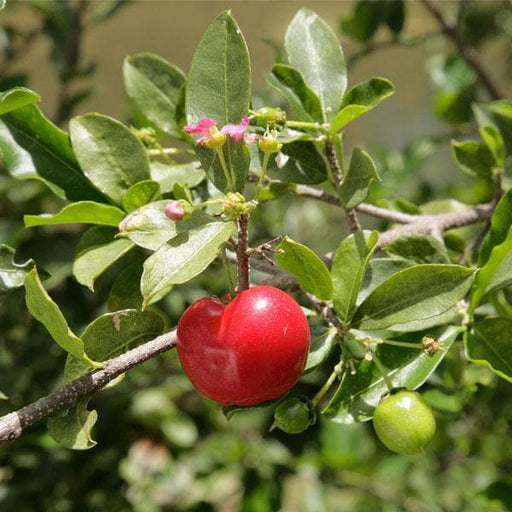 Save 15%
Save 15%
DescriptionGrowing Barbados Cherry is an easy way to add a tropical flair to your garden. When you know its important and how to care for Barbados ...
View full details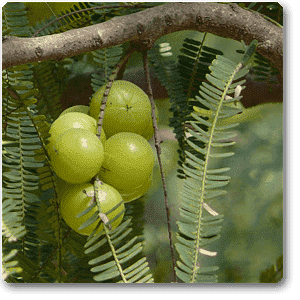 Save 17%
Save 17%
DescriptionImprove immunity of your all family member by growing a nutritious and vitamin rich an amazing Amla plant. Amla is a small to the medium...
View full details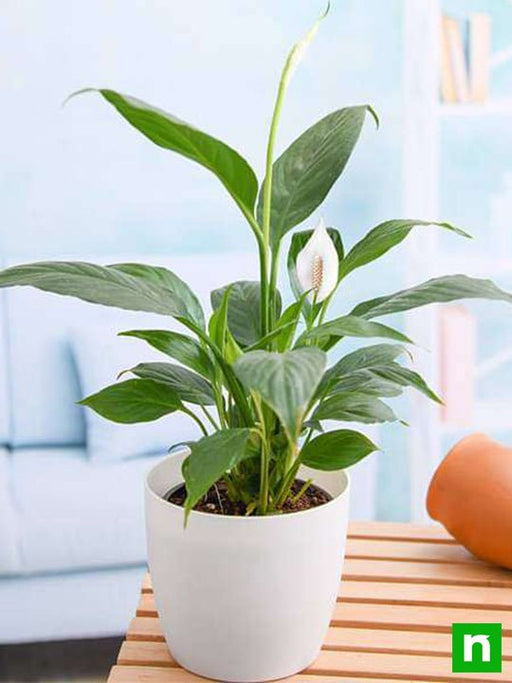
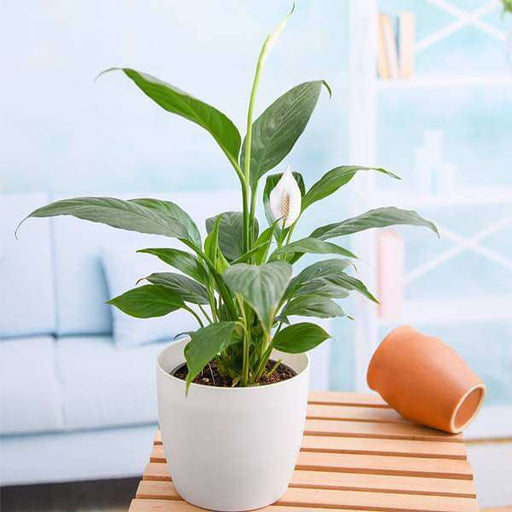 Save up to 15%
Save up to 15%
DescriptionPeace Lily Plant is a very popular and very rare indoor flowering houseplant. It is also an excellent air purifier plant.What makes it s...
View full details
 Save 20%
Save 20%
DescriptionFlowers make intimate connections they increase our connectivity with family and friends. Mogra plant is famously known as Jasmine flowe...
View full details
 Save 10%
Save 10%
DescriptionThe Kalanchoes are thick leaved elegant flowering succulent houseplants. Make your home garden more vibrant and full of colors by bringi...
View full details Save 45%
Save 45%
Description Pack of 4 succulents that are very easy to care for. A perfect pack to start growing plants worry-free. About You get 4 succulent plant...
View full details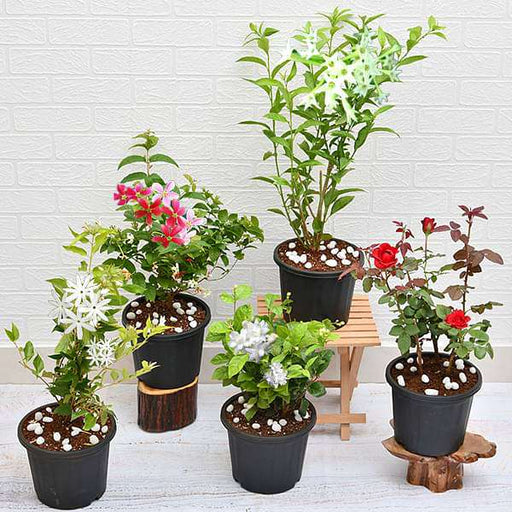 Save 12%
Save 12%
DescriptionAromatic plants bring into a room or house an often overlooked benefit. These plants have a pleasant scent.About You plant a hope when ...
View full details
 Save up to 50%
Save up to 50%
DescriptionIf you long for indoor greenery but have not succeeded with houseplants, consider these beautiful succulents. A perfect pack to start gr...
View full details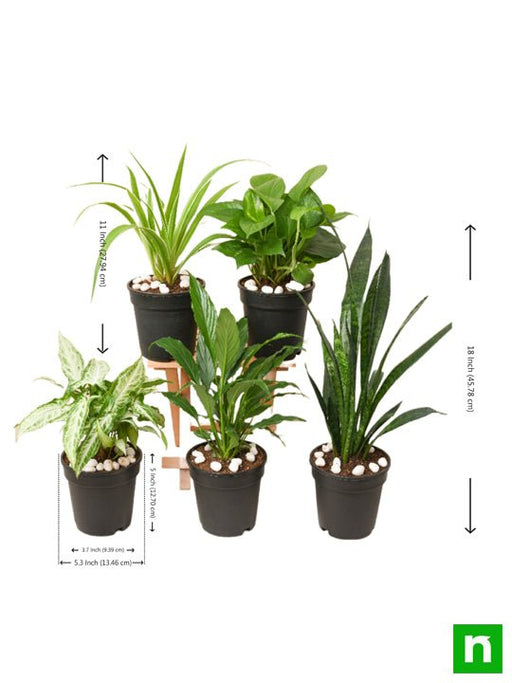
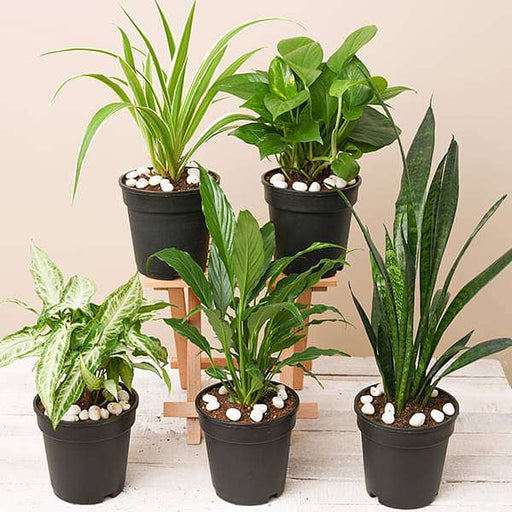 Save 21%
Save 21%
DescriptionThis plants pack contains amazing 5 houseplants + 5 Pots. Surround your home with these best pollution killer plants for a clean and hea...
View full details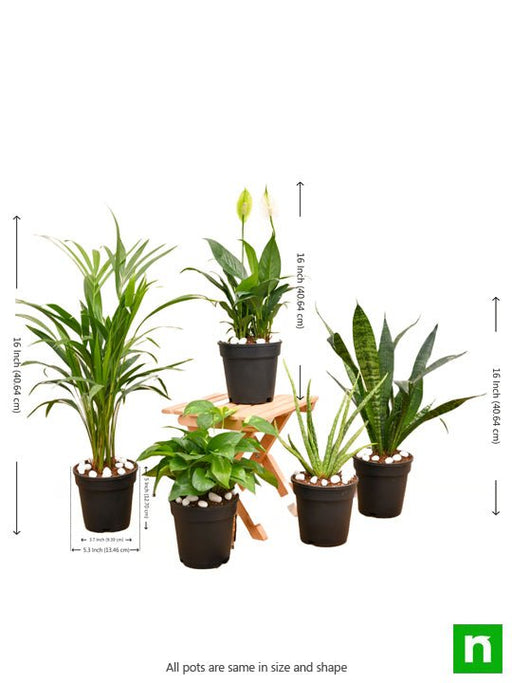
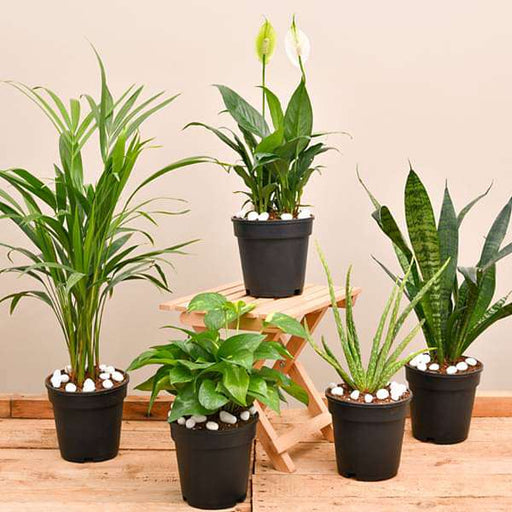 Save 20%
Save 20%
DescriptionIf you or anyone from your family wants to breathe fresh air, cleaner air in their homes, this 5 plants pack purify the air around and r...
View full details
 Save 40%
Save 40%
DescriptionSet of 2 Bonsai Looking Grafted Adenium PlantsAbout You get 2 Bonsai looking hardy grafted Adenium plants in a single pack.Plants are k...
View full detailsButterflies are attracted to colorful flowers with nectar-rich centers, such as Lantana, Verbena, and Zinnia. By planting these butterfly-friendly flowers, you can help sustain the local butterfly population and create a beautiful garden in the process.
Birds are attracted to plants with berries, fruits, and seeds. Some of the bird-friendly plants include Sunflower, Coneflower, and Black-eyed Susan. By planting these plants, you can attract a variety of birds to your garden and create a beautiful natural habitat.
Hummingbirds are attracted to bright red, orange, and pink flowers with nectar-rich centers, such as Fuchsia, Bee balm, and Salvia. By planting these hummingbird-friendly plants, you can create a beautiful garden and attract these tiny birds.
Songbirds are attracted to plants with berries, fruits, and seeds, such as Holly, Viburnum, and Elderberry. By planting these songbird-friendly plants, you can create a beautiful natural habitat and attract a variety of birds to your garden.
Pollinators, such as bees, butterflies, and hummingbirds, are attracted to plants with brightly colored flowers with nectar-rich centers, such as Milkweed, Coneflower, and Goldenrod. By planting these pollinator-friendly plants, you can help sustain the local pollinator population and create a beautiful garden.
Finches are attracted to plants with small seeds, such as Thistle, Sunflower, and Coneflower. By planting these finch-friendly plants, you can attract these colorful birds to your garden and create a beautiful natural habitat.
Bees are attracted to plants with brightly colored flowers with nectar-rich centers, such as Lavender, Sage, and Rosemary. By planting these bee-friendly plants, you can help sustain the local bee population and create a beautiful garden in the process.
Monarch butterflies are attracted to Milkweed, which is the only plant that their larvae can feed on. By planting Milkweed, you can help sustain the local Monarch butterfly population and create a beautiful garden in the process.
Swallowtail butterflies are attracted to plants with brightly colored flowers with nectar-rich centers, such as Butterfly bush, Coneflower, and Black-eyed Susan. By planting these Swallowtail butterfly-friendly plants, you can create a beautiful garden and attract these colorful butterflies.
Orioles are attracted to plants with small, sweet fruits, such as Mulberry, Serviceberry, and Raspberry. By planting these Oriole-friendly plants, you can attract these beautiful birds to your garden and create a beautiful natural habitat.
Woodpeckers are attracted to plants with berries and insects, such as Dogwood, Serviceberry, and Oak trees. By planting these woodpecker-friendly plants, you can attract these unique birds to your garden and create a beautiful natural habitat.
Cardinals are attracted to plants with berries and seeds, such as Holly, Viburnum, and Sunflower. By planting these cardinal-friendly plants, you can attract these beautiful birds to your garden and create a beautiful natural habitat.
Goldfinches are attracted to plants with small seeds, such as Thistle, Sunflower, and Coneflower. By planting these Goldfinch-friendly plants, you can attract these beautiful birds to your garden and create a beautiful natural habitat.
Learn how to create a bird-friendly garden and which plants are perfect for attracting birds.
Hummingbirds are beautiful and fascinating creatures, and there are certain plants that can attract them to your garden.
Create a beautiful butterfly garden with these plants that are perfect for attracting these delicate creatures.
Bees are essential to our ecosystem, and creating a bee garden is a great way to help support them. Learn which plants to choose for your bee garden.
Planting native species in your garden is not only beneficial for the environment, but it can also attract a variety of wildlife, including birds and butterflies.
Turn your garden into a sanctuary for wildlife with these tips on creating a habitat garden.
Songbirds are a delight to watch and listen to, and there are certain plants that can attract them to your garden.
Yes, plants in pots can attract birds and butterflies just like plants grown in the ground. You can choose plants that are attractive to these creatures and plant them in containers.
Some plants that attract butterflies include milkweed, butterfly bush, zinnias, coneflowers, and asters.
Some plants that attract birds include sunflowers, elderberries, serviceberries, purple coneflowers, and black-eyed Susans.
Yes, you can create a butterfly garden in a pot. Choose plants that are attractive to butterflies and arrange them in a pot with good drainage.
Use a well-draining potting mix for plants in pots. This will allow the roots to breathe and prevent water from accumulating in the pot.
The frequency of watering plants in pots depends on the type of plant, size of the pot, and environmental conditions. As a general rule, water when the top inch of soil is dry to the touch.
Yes, you can use fertilizer on plants in pots. Choose a fertilizer that is appropriate for the type of plant and follow the instructions for application.
Yes, bird feeders and butterfly feeders can attract these creatures to your garden. However, it's important to also provide plants that serve as a natural food source.
Some plants that serve as both food and shelter for birds and butterflies include coneflowers, sunflowers, milkweed, and butterfly bush.
Even if you have a small space, you can still create a bird-friendly garden by choosing plants that are attractive to birds and creating a welcoming habitat with bird feeders, birdhouses, and a water source.
Some plants that attract hummingbirds include bee balm, cardinal flower, columbine, and salvia.
Yes, there are some plants that attract birds and butterflies that can be grown in the shade, such as hostas, astilbe, and ferns.
To prevent pests from damaging your plants in pots, use a pest control spray or natural remedies like neem oil or insecticidal soap. You can also use companion planting to repel pests.
Some plants that attract bees include lavender, borage, marigolds, and catmint.
Yes, you can use compost in your pots. It's a great way to add nutrients to the soil and improve soil structure.
Choose pots that are appropriate for the size of the plant and provide good drainage. Materials like terracotta, ceramic, and plastic are all suitable options.
To attract birds and butterflies to your garden, you need to plant a variety of plants that provide food, water, and shelter. Choose nectar-rich flowers like zinnias, marigolds, and lantanas that provide nectar to butterflies. For birds, choose plants that bear fruits, berries, and seeds. You can also add a bird bath or a shallow bowl of water to provide a source of water for them.
Yes, you can grow plants for butterflies and birds indoors. Choose plants that can thrive in indoor conditions and provide the necessary food and shelter. Examples of indoor plants that attract butterflies include ferns, ivies, and herbs like parsley and dill. For birds, consider growing plants like succulents, spider plants, and peace lilies.
Yes, and patios. You can use vertical gardening techniques and planters to maximize space. Choose plants that don't take up much space but still provide food and shelter to birds and butterflies. Examples of small space-friendly plants include herbs like basil and mint, succulents, and small flowering plants like petunias and impatiens.
It's best to avoid using pesticides on plants for butterflies and birds. Pesticides can harm these beneficial insects and birds, and even kill them. Instead, use natural pest control methods like neem oil, insecticidal soap, and companion planting to keep pests at bay.